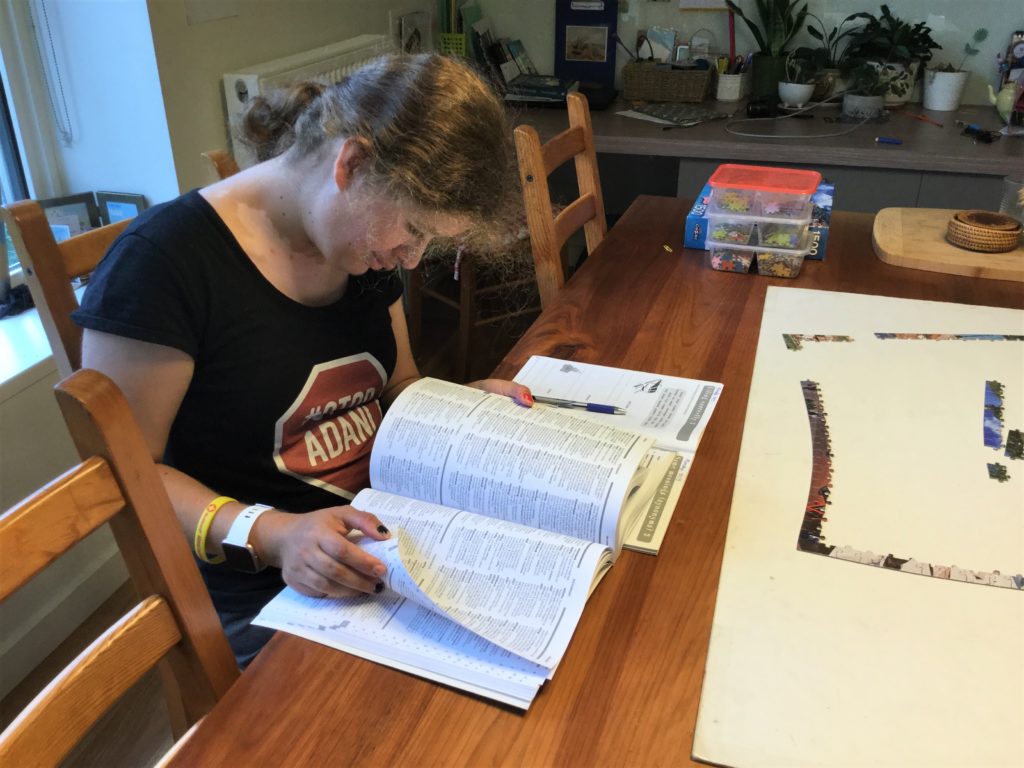Shopping the other day for extra food containers, I overheard a lady complain about all the government announcements and changing rules around COVID 19.
“I wish they’d stop keep coming out with new information,” she fretted. “Why don’t they just stick with one thing for a bit?”
Lady, I thought, I feel for you. I wish they would too.
But they can’t. There’s no other way they can respond adequately to the COVID 19 sweeping the planet.
In this new world, this Age of Viruses, change is the only constant.
That seemingly abstract concept of ‘exponential growth’ is hard to grasp. But rapidly rising case numbers are making visible the otherwise unseen tide of virus washing through us. It’s creating a new, strange world of empty streets, closed shops and unheard-of job losses. We’re struggling to keep up.
It was weird dropping food off to Mum today and keeping distant, not giving her a hug. How long before the next hug? This non-touching is on the long list of enforced changes that will just keep rolling out until we settle down into a more restricted routine of daily life with no conceivable end in sight. Certainly not by Easter.
Hidden in plain sight among the headline-grabbing toilet roll crises and business closures, you’ll find the quiet dilemmas of family, friends, neighbours and colleagues who can find change difficult at the best of times. This includes those with autism. Especially with intellectual disabilities.
This brings me to our own little tribe’s fast-evolving ‘new normal’.
My daughter’s day training program has closed, ostensibly until after Easter, but who’s kidding who? With her combination of autism and cognitive disability, she finds it hard to understand anything open-ended.
“It’s driving me batty!” she tells me.
And then, in more Trumpian fashion, “It has to finish by Sunday.”
We might feel there’s very little we can control at the moment.
But we can control plenty of the minutiae of everyday life.
We’re being particularly vigilant with our self-isolation, because underlying endocrine conditions put my 20 year-old daughter’s risk of dying from this virus on a par with my 78 year-old mother’s.
So no, sweetheart, you can’t go to the shops to buy your magazines. No, you can’t go to the bakery, and anyway, there are no more taste tests. And I don’t know when you’ll be able to go out to the shops again. All I know is that it won’t be for weeks, maybe even months.
She doesn’t understand this.
My oldest Aspie boy, who made it to the end of school after many trials and considerable mental anguish, has begun uni this year.
Sort of.
It’s all in a state of flux, with everything going on line but not completely organised. It’s doing his head in. And this began to affect him terribly last week. It looked like we were suddenly reverting to the bad old days. He was back in black, and not in a good way.
My younger Aspie has retreated big time into Minecraft. At least he’s on holidays. E-learning next term will be interesting…
So what can you do? What can any of us do?
Here are three things that we’re doing.
Keeping up the routine

Tweaking – rather than full-on changing – the routine.
Here at Dancing Wombat HQ, we’re working hard at keeping routines of some sort going. This is advised for all of us everywhere, but it’s especially important for our younger and older kids with autism. Here’s how we’re doing the routine with our mob:
- Getting up at a routine time.
- Changing out of PJs into neat day clothes.
- Exercising. As my daughter is no longer taking public transport, we’re going for a walk when she would have been on a train or a bus. I’m still trying to get my youngest to do something similar, to make up for him not riding to school. I guess his holidays have started though, so I’ll cut him a bit of slack – for now.
- Establishing activity times and sticking to them. My daughter is having a half hour sleep in, then getting ready as per a normal weekday. For younger children, this might mean setting your screen times and outside times, play times and quiet times.
- Dusting off the family chores list. Helping with the dishes, the washing, cleaning the bathroom. They’re not hard tasks. Encourage your kids to help around the house while they’re young and find it fun to get involved, rather than a chore to be avoided. Sometimes my teens need maximum cajoling for what seems like a minimum of assistance.
- Doing family stuff together. My fantasies of family games around the table after dinner aren’t quite playing out as they did in my imagination, but the three boys are actually joining us each night to watch the news, something they’ve never done before. Our daughter listens from her favourite chair. Family together time can be as simple as this.
You get the picture – the activities are essentially the same as pre COVID 19. But we’ve relocated and tweaked them (realistically), allowing us to maintain routine and stability when all around seems to be chaos.
We might feel there’s very little we can control at the moment. But doing this, we can control plenty of the minutiae of everyday life.
Not panicking!
The Hitchhiker’s Guide to the Galaxy had it right – don’t panic!
I’ve observed in my own children that even small changes can create extreme reactions. Catastrophising is a “thing” for many with autism. For example, my daughter will have a meltdown if I’m out early and her father needs to do her hair. Now throw in a global pandemic with major disruptions to everyday life, and you can see how this becomes a recipe for panic.
I try to be upfront with my children. If I downplay the risks of COVID 19 because I don’t want my kids to worry, they might not take the necessary precautions seriously enough. Knowledge is power, and that helps them to regain a sense of control. While my boys are scared for their sister, equally, they know they have control over helping her to stay safe. For my Aspies especially, that reduces the panic factor.
Being sensitive
I know that when I’m under stress, if I didn’t make an effort I could zone out from the needs and stresses of others – not to mention the positive, interesting stuff too. But I’m really trying hard to keep ‘walking a mile’ in the shoes of my loved ones with ASD as this stressful situation runs its course. I’m trying to stay aware of the fault lines and fractures and dig deep inside myself, so I can be there for extra emotional support and understanding.
This will pass. The changes will settle as the restrictions are finally and conclusively decided. This will provide at least a level of certainty, amid the hardship and loss. Then, no doubt, we will all be yearning for a change in routine.
Until then, be aware, be kind, keep calm, soap on and Happy Wombatting!


